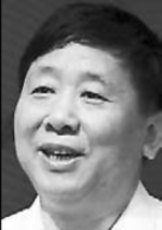Population getting old before it gets rich
Updated: 2011-11-10 07:54
By Ye Xiaowen (China Daily)
|
|||||||||

The global population hit 7 billion on Oct 31, and along with the growing number of people on the planet, economic and social progress mean more people are living longer and an aging population will become the normal state for human society.
This is clearly the case in Asia. Take Japan as an example: The aging population rate of Japan is the highest not only in Asia, but also around the world.
China is also home to a growing number of senior citizens, but here an aging population has come early. For developed countries, their aging society did arrive until they had finished industrialization and the GDP per capita had reached $10,000. However, when China's society started aging in 1999, its GDP per capita was still lower than $3,000. Chinese people became old before they got rich.
It took more than 40 years for the aging population rate in developed countries to increase from 5 percent to 10 percent. It took only 18 years in China.
China's aging population is also having a greater influence on economic and social development. The "golden population period", characterized by a low dependency ratio - namely, less children and elderly and more people of a working age - which is favorable for economic development, will end by 2033. Countries that have a high dependency ratio have more people who are not of working age, and fewer who are working and paying taxes. The total dependency ratio in China will reach 60 to 70 percent in the next 20 years, and the aged population dependency ratio will reach 40 to 50 percent.
To deal with its aging population, the Chinese government needs to ensure that policies related to the aging population are coherent and cohesive and in accordance with the country's conditions, so that it can still maintain a sustainable development in the future.
As the aging population has come before the economic, employment and social security conditions have been fully developed, the government should refrain from any knee-jerk response to the nation's aging society and implement coordinated policies so as to ensure sustainable development.
Although the aging population is a demographic phenomenon, it has an influence on all aspects of society, so an all-encompassing perspective is needed when drafting public policies.
Families are the foundation for the care of the elderly, but the government must try its best to build up a social security system for the aged population so as to guarantee their livelihoods and medical care with institutional support.
Four principles are outlined in the 12th Five-Year Plan (2011-2015): broad coverage of social security, a basic pension ensured for all, and multi-level and sustainable service. The reform of the pension insurance system will provide a basic pension for all elderly citizens.
The 12th Five-Year Plan for the Development of China's Aged Population Affairs requires that a system of old people's homes should be developed nationwide with 3.42 million more beds for the old. Families should be the leading force to care for the old people. All grassroots medical institutions should provide a health service for senior residents and monitor the health conditions of people aged 65 years and above. Local old people working committees should be established to strengthen the social management of the elderly.
But besides these, all old people should have opportunities to make contributions to society if they are willing to. The government should attach significance to encouraging old people participate in social development and be involved in social life.
The author is vice-president of the Central Institute of Socialism and a member of the 21st Century Committee for China-Japan Friendship.
(China Daily 11/10/2011 page8)











